Another massive list. I need to get these out before the onslaught of September –December announcements. In order of winners, shortlists, longlists and news:
———————-
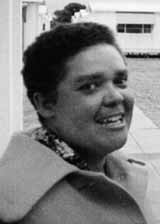
The winners of the 2011 Bessie Head Literature Awards were announced back in July. Bessie Head (1937 – 1986) is one of my favorite African writers. Certainly, her legacy and influence is hard to miss if you follow African women writers. Her most important works includes When Rain Clouds Gather, Maru, and A Question of Power. Not much celebrated in her lifetime, it’s gratifying to that the “the goal of the award is to help preserve Bessie Head’s legacy in Botswana, and to encourage the development of Botswana literature in various genres in English”. The winners are:
- Novel category: Ms. Tlotlo Pearl Tsamaase for her manuscript Unlettered Skies of the Sublime.
- Short Story category: Boikhutso Robert for a story entitled “The Zambezi Crocodiles”.
- Poetry category: John Hutcheson for a set of poems (“The Massacre of Innocents”, “The Man”, and “Curse”).
Read about the runners-up here.
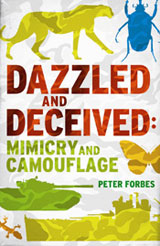 Peter Forbes has won the £50,000 Warwick Prize for Writing with his non-fiction Dazzled and Deceived, Mimicry and Camouflage, a “ fascinating story of mimicry and camouflage in science, art and the natural world”. I missed the March announcement completely. This biennial award was inaugurated in 2009 and is funded by The University of Warwick in the UK. It is “an international cross-disciplinary award open to any genre or form of writing”. The books on the shortlist are:
Peter Forbes has won the £50,000 Warwick Prize for Writing with his non-fiction Dazzled and Deceived, Mimicry and Camouflage, a “ fascinating story of mimicry and camouflage in science, art and the natural world”. I missed the March announcement completely. This biennial award was inaugurated in 2009 and is funded by The University of Warwick in the UK. It is “an international cross-disciplinary award open to any genre or form of writing”. The books on the shortlist are:
- The Wasted Vigil by Nadeem Aslam (fiction)
- Dazzled and Deceived: Mimicry and Camouflage by Peter (non-fiction)
- The Memory of Love by Aminatta Forna (fiction)
- The Literature Police: Apartheid Censorship and its Cultural Consequence by Peter D McDonald (non-fiction)
- What Color is the Sacred by Michael Taussig (eclectic mixture of non-fiction & fiction)
- White Egrets by Derek Walcott (fiction; poetry)
I think it would be fun to judge this competition!
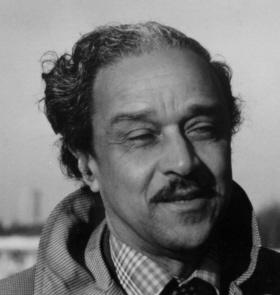
The winners of the 2010 Guyana Prize for Literature were announced in September 2011. They are:
- 2010 Guyana Prize, Fiction Category: David Dabydeen for Molly and the Muslim Stick
- Caribbean Award, Fiction: Myriam Chancy for The Loneliness of Angels
- 2010 Guyana Prize, Poetry: Marck McWatt for The Journey to Le Repentir
- Caribbean Award, Poetry: Mark McWatt for The Journey to Le Repentir
- Lifetime Achievement Award: Sir Wilson Harris for his contributions to West Indian Literature
Take a look at Wilson Harris if you are interested in Caribbean Literature. Thanks to Geoffrey Philip for the notice.
–>
Tatjani Soli prevailed in the fiction category of the James Tait Memorial Prizes with her novel, The Lotus Eaters. The prize for best biography went to Hilary Spurling for her book Burying the Bones: Pearl Buck in China. The novels on the fiction shortlist were:
- The Thousand Autumns of Jacob De Zoet by David Mitchell
- La Rochelle by Michael Nath
- The Invisible Bridge by Julie Orringer
- The Lotus Eaters by Tatjani Soli.
The iconic bookstore Shakespeare and Company launched The Paris Literary Prize this year. The 10,000€ international prize is awarded for an unpublished novella. The inaugural winner is Rosa Rankin-Gee for her work, The Last Kings of Sark. She was one of Esquire Magazine’s 75 Brilliant Young Brits 2010
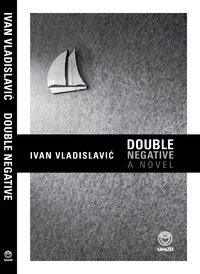 The 2011 M-Net Literary awards were given out in June of this year (via Books Live SA). This award scheme is among the top literary prizes in South Africa. It aims to encourage quality novel writing in any of the country’s 11 official languages. The winners are:
The 2011 M-Net Literary awards were given out in June of this year (via Books Live SA). This award scheme is among the top literary prizes in South Africa. It aims to encourage quality novel writing in any of the country’s 11 official languages. The winners are:
- English category: Double Negative by Ivan Vladislavic
- Afrikaans category: Die benederyk by Ingrid Winterbach
- Nguni category: Inkululeko Isentabeni by Ncedile Saule
- Sotho category: Lehutso by KJ Sekele
- Film category: Happiness is a Four-letter Word by Cynthia Jele
The shortlist for the English category included Zoo City (Lauren Beukes), In a Strange Room (Damon Galgut), Last Summer (Craig Higginson) and Double Negative (Ivan Vladislavic).
The entire shortlist is here.
The PEN Awards describes itself as the “ most comprehensive literary awards program” in the US. It certainly is – 17 awards, fellowships and grants were awarded on August 10, 2011. I’m only presenting winners in the categories that I find most interesting . They are:
- PEN/Robert W. Bingham Prize: To a fiction writer whose debut work, published in 2010, represents distinguished literary achievement and suggests great promise. Winners Susanna Daniel, Stiltsville and Danielle Evans, Before You Suffocate Your Own Fool Self; Runner-up: Teddy Wayne, Kapitoil
- PEN/John Kenneth Galbraith Award for Nonfiction: A biennial award for a distinguished book of general nonfiction possessing notable literary merit and critical perspective published in 2009 or 2010. Winner: Robert Perkinson, Texas Tough: The Rise of America’s Prison Empire; Runners-up: John W. Dower, Cultures of War: Pearl Harbor / Hiroshima / 9-11 / Iraq, Isabel Wilkerson, The Warmth of Other Suns
- PEN/Joyce Osterweil Award for Poetry: To an emerging American poet of any age showing promise of further literary achievement. Winner: Ishion Hutchinson, Far District
- PEN Open Book Award: For an exceptional work of literature by an author of color published in 2010. Winner: Manu Joseph, Serious Men. Runner-up: John Murillo, Up Jump the Boogie
- PEN Award for Poetry in Translation : For a book-length translation of poetry into English published in 2010. Winner: Khaled Mattawa, Adonis: Selected Poems. Runners-up Jonathan Galassi, Canti by Giacomo Leopardi; Michael Hofmann, Angina Days by Gunter Eich; Charles Simic, Oranges and Snow by Milan Djordjević
- PEN Translation Prize: For a book-length translation of prose into English published in 2010. Winner: Ibrahim Muhawi, Journal of an Ordinary Grief by Mahmoud Darwish. Runners-up: David Bellos, Hocus Bogus by Romain Gary, publishing as Émile Ajar; Malcolm C. Lyons with Ursula Lyons, The Arabian Nights: Tales of 1001 Nights .
Phew. Read the entire award list here.
Winners of the 2011 Queensland Premier Literary Awards of Australia have been announced. They are :
- Fiction Book Award: Amanda Lohrey for Reading Madame Bovary
- Emerging Queensland Author – Manuscript Award: Annah Lee Faulkner for The Beloved
- Unpublished Indigenous Writer – Arts Queensland David Unaipon Award: Dylan Coleman for ‘Mazin’ Grace
- Non-Fiction Book Award: Mark McKenna for An Eye for Eternity: The life of Manning Clark
For the entire shortlist plus reviews, see ANZ Litlovers Litblog.
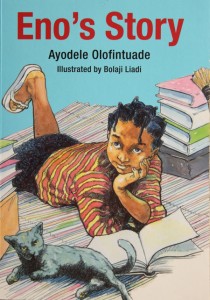 The three finalists for the Nigerian (NLNG) Prize for Literature have been announced. They are:
The three finalists for the Nigerian (NLNG) Prize for Literature have been announced. They are:
- Eno’s Story by Ayodele Olofintuade
- The Missing Clock by Mai Nasara
- The Great Fall by Chinyere Obi-Obasi.
The shortlist included The Runaway Hero by Uche Peter Umez, Aunty Felecia Goes to School by Philip Begho and Red Nest by Thelma Nwokeii. This prize has the richest purse in Africa; the winner will get $100,000. The prize also rotates “in four-year cycles according to the select genres, adult fiction, drama, poetry, children’s fiction”. This year’s genre is children’s fiction. Chielozona Eze’s article (from which the above quote was taken) explains the many problems with the award scheme and suggests solutions to fix it. Nonetheless, Nigeria continues to demonstrate a solid commitment to book development.
The jury’s second selection of the 2011 Jan Michalski Prize has been announced. They are:
- The White King by György Dragomán (novel)
- The Solitude Project by Mark Kharitonov(novel)
- Godot’s Shadow by Antoni Libera (novel)
- The Blue Fox by Sjón (novel)
- Ilustrado by Miguel Syjuco (novel)
The award recognizes a work (fiction or nonfiction) of international literature, “ irrespective of the language in which it is written”. The jury will deliberate and select the winner in November 2011. The prize includes a cash reward of about $60,000. Shortlisted authors are also offered a three-month residency in Switzerland. A very good source for translated fiction.
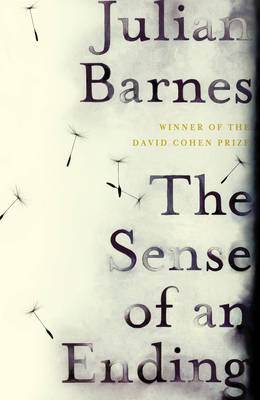 The novels on the shortlist for the 2011 Man Booker Prize are:
The novels on the shortlist for the 2011 Man Booker Prize are:
- Julian Barnes – The Sense of an Ending
- Carol Birch – Jamrach’s Menagerie
- Patrick deWitt – The Sisters Brothers
- Esi Edugyan – Half Blood Blues
- Stephen Kelman – Pigeon English
- A D Miller – Snowdrops
The winner will be announced on October 18.
The finalists for the 2011 Dayton Peace Prize’s fiction category are:
- The Surrendered by Chang-rae Lee
- How to Read the Air by Dinaw Mengestu
- Beneath the Lions Gaze by Maaza Mengiste
- The Gendarme by Mark Mustian
- Kapitoil by Teddy Wayne
“The Prize celebrates the power of literature to promote peace, nonviolent conflict resolution, and global understanding”. For the non-fiction finalists and other related news, please click here. Winners will be announced on November13, 2011.
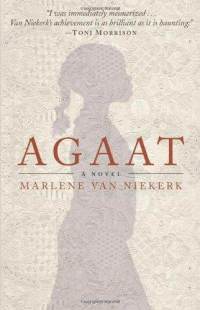 Six writers are on the shortlist for the 2011 St. Francis College Literary Prize (another new-to-me scheme). They are:
Six writers are on the shortlist for the 2011 St. Francis College Literary Prize (another new-to-me scheme). They are:
- Kevin Brockmeier, The Illumination
- Joshua Cohen, Witz
- Jonathan Dee, The Privileges
- Yiyun Li, Gold Boy Emerald Girl
- Marlene van Niekerk, Agaat
- Brad Watson, Aliens in the Prime of Their Lives
The biannual prize has a purse of $50,000 and is open to self-published books as well as works in translation. Most excellent. The winner will be announced on September 17th, at the Brooklyn Book Festival. (Thanks to the Literary Saloon).
The Center for Fiction(NYC, US) has releases the shortlist for its Flaherty-Dunnan First Novel Prize. The debut novels are:
- The Free World by David Bezmozgis
- The Sweet Relief of Missing Children by Sarah Braunstein
- Daughters of the Revolution by Carolyn Cooke
- The History of History by Ida Hattemer-Higgins
- Lamb by Bonnie Nadzam
- Shards by Ismet Prcic
- Touch by Alexi Zentner
The winner will be announced on December 6th.
The 17-book longlist for the Canada’s 2011 Scotiabank Giller Prize. For all things Giller, I refer you to Kevin from Canada. He and his crew do a great job covering this award scheme. The shortlist will be announced on October 6, 2011.
The 16-book longlist for the 2012 DSC Prize for South Asian Literature was released this week. Authors from India, Pakistan, Sri Lanka, Bangladesh, Nepal, Bhutan, Maldives and Afghanistan are eligible for this award.
In awards-related news:
- Administrators of the Wole Soyinka Prize have amended their rules. They will now accept submissions written in any genre and from any African country.
- A group of women in the Australia book scene have launched an award scheme for women writers only. It is similar of the UK’s Orange Prize. More info here.
- The Commonwealth Foundation is set to re-launch its two award scheme, the Writers’ Prize and the Short Story Prize, under a new umbrella called Commonwealth Writers.
[…] Reads has a comprehensive roundup of literary prizes and awards the world […]
LikeLike
So many prizes here I’ve never even heard of, really appreciate the diversity of prizes you highlight – so many bloggers who highlight these types of things talk about only the North American / European lists or titles. Of course, it’s quite bad on my wish list!
Also, I love that the Warwick prize combines both fiction and non-fiction, and I’m even more excited to see that a non-fiction book won!
LikeLike
Yeah, the Warwick Prize sounds really good. It’s one to follow.
LikeLike
Oh, I just bought two of Bessie Head’s books last week: I’m all the more excited to know that she is one of your favourites.
I’m obsessing over the Giller Prize longlist that you’ve mentioned, but I see that a couple of those are also nominated for other prizes too (the Edugyan and DeWitt for the Booker; the Zentner and Bezmozgis for the US First Novel prize).
But now that I’m looking at all these other lists…sooooooo many books…It’s inspiring *and* overwhelming!
LikeLike
What a coincidence. I’m glad that you’re interested in Bessie Head. Looking forward to your thoughts on the books. I know that you;re obsessing over the Giller Prize and I will be following your progress. Thanks
LikeLike
Impressive work done, Kinna. I have only read Eno’s Story, infact I bought one for my 8 year old. And I must say I loved it. For us in Africa, issues like witchcraft and the charlatans who call themselves pastors were well treated and simplified for children to understand and grasp that being brilliant, smart and different is not wizardry! I would be happy to see Ayodele Olufintuade taking the award, though I am sure the others might equyally deserve it!
LikeLike
It’s nice when parents also enjoy the books that their children read. I’m yet to read and review but will be doing it soon. Thanks and say hello to your boys for me.
LikeLike
A great informative post, with severe implications for my bank balance. Thanks
LikeLike
Haha, why not borrow some then? All the best.
LikeLike
I’m overloaded by all the books I want to read now! Thanks for putting this together. 🙂
LikeLike
I’ve a hard time thinking of you being overloaded by books; you read so many books. I’m sure one of these will crop up on your blog soon. And I spoke too soon. I see you have a review of the Li book :).
LikeLike
Yep, I loved the Li! 😀
I’ve finally entered all of the titles that sound interesting in my LT wishlist. I couldn’t help but notice how skewed the gender representations are. Oh well!
LikeLike
Enjoy all the books. I’m very behind on my awards round-up feature. I will be catching up the weekend of Nov 26-27th.
LikeLike
Thanks for this round-up, Kinna. There are so many interesting books listed and I have actually read some of them. I just hope I can find some of the ones from the more obscure lists.
LikeLike
You are welcome, Gavin.
LikeLike
Wow, great summary of so many different prizes! I’m a bit ashamed by how many of these I haven’t heard of previously. I’ve never paid much attention to the different prizes, but being involved in the book blogging community and reading about so many of them has piqued my interest.
LikeLike
I’ve discovered lots of new awards since starting this feature too. All the best.
LikeLike
Thanks for these round-ups, Kinna! Very informative! So many new to me literary prizes & authors I could spend the whole evening browsing more info about them. 🙂
Of all the books mentioned in your post I have only read The White King by György Dragoman.
LikeLike
You are welcome. Wow, I’ll look for your review on Dragoman’s book
LikeLike